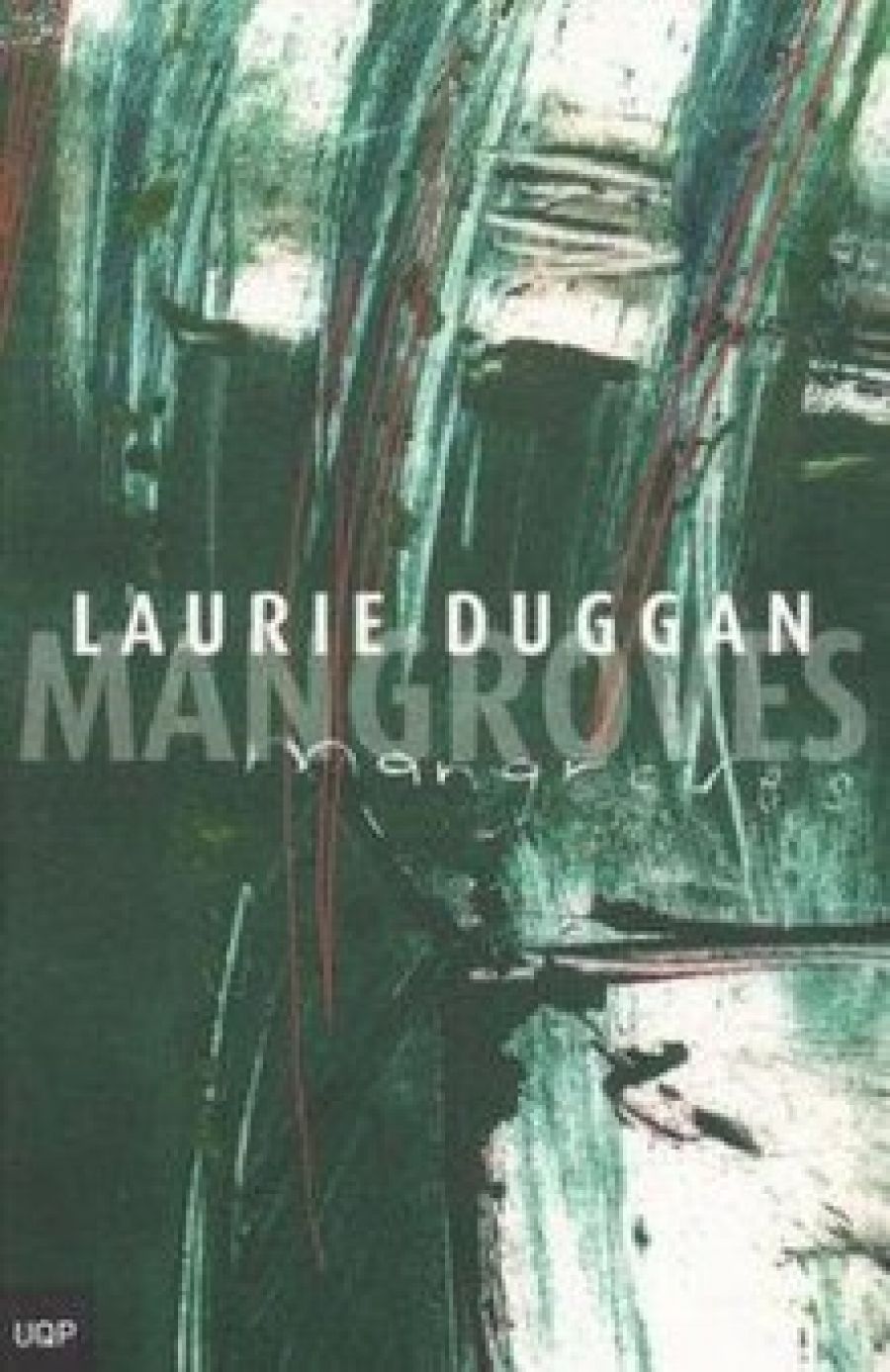
- Free Article: No
- Contents Category: Poetry
- Review Article: Yes
- Article Title: Being There
- Online Only: No
- Custom Highlight Text:
Poems are like mangroves. They lodge and grow in the mind, becoming part of us, just as these plants take root in estuarine silt. Even on the page, there is sometimes a resemblance. As its title suggests, Laurie Duggan’s first volume since New and Selected Poems (1996) is substantially a product of his recent move to Brisbane, containing a large section of poems coloured by references to the city’s subtropical conditions. However, Mangroves also brings together varied material that dates from 1988 to 1994, some of which – notably the ‘Blue Hills’ sequences – has been published elsewhere.
- Book 1 Title: Mangroves
- Book 1 Biblio: UQP, $22 pb, 186 pp
It should be no disservice to Duggan to say that the majority of the poems in Mangroves look to have been born out of a desire, in T.S. Eliot’s phrase, to ‘keep in training’. As Possum had it, these are the poems a poet must write so as to be ready, ‘like a well-oiled fire-engine, [ … ] for the moment when he really has something to say’. Certainly, on the evidence here, Duggan now appears fitter than ever before. But while his book does, indeed, include a number of ‘speaking’ poems, the force of their messages, their ability to keep a hold over the reader, can be diminished by the weight of peripheral writing, so that the effect of the work as a whole is rather diffuse. This is unfortunate because, taken individually, Duggan’s poems are always sharp and carefully realised.
Duggan has spoken, in an interview with Martin Duwell, of his interest in cryptography, and is well known for a series of anagram poems constructed from the names of colleagues. Repeatedly, in Mangroves, he writes about signs or maps, and draws attention to nature’s patterns and random effects, at one point asking: ‘Is sense made simply / through binding together disjunctives?’ It is in this way that many of the poems operate. Duggan has a tendency, common among poets, to arrange and classify the details of his life so as to digest them; he likes to think of poems as documents which, ‘like the signs of graffitists’, are ‘registers of ‘being there’’.
Throughout the collection, Duggan travels widely, finding himself at one moment in Florida, at others in Sydney, or in the small towns of Gippsland, where his forbears were settlers. It is, nevertheless, something of a surprise to come to a short landscape poem set in Cumbria, England, called simply ‘At Jonathan and Tom’s’. As poetry, it is unmistakable:
Rowan berries cluster;
long shadows of stone fences ride
up Dentdale’s side,
the Dee
circuitous below Corn Close.
Miles above Sedbergh,
amid fells that felt
the glacial rub,
sheep high on the slopes
delight
in the light.
Simple observation is rarely this good; yet Duggan shows himself at his best when he allows thoughts and images to flow into one another, achieving consistent success with a group of eleven poems headed ‘Water Level’. In ‘The Submerged Cathedral’, for example, idea and illustration combine seamlessly:
Pain won’t last, neither will beauty;
once everything is registered as atmosphere
only change is left: each waving branch
or fall of light upon water, each
scent or sound suggests as it fades
a world diminished against a myth of plenitude.
Alternatively, in ‘Rapture’, a poem that describes its own processes and owes something, perhaps, to the beguiling contortions of the English poet Mark Ford, Duggan skilfully manages to unstitch his lines and remain coherent:
there is nothing
to make of it
or to make it of
save what lies about
heaped on the floor
laid out like a map
outside the window
not to laugh at
objects on a desk
tools of trade
arrayed so to speak
to speak so
of nothing in particular
the patterned refrain
of Euro disco
where chromosomes
bang together
in a small box
as a coloured light
goes on and off
As these extracts make clear, Laurie Duggan is a versatile and acutely perceptive poet. Above all, he understands how to create substance from his experience of the world. The real rewards of Mangroves, however, are those of discovering poems that do more than merely memorialise the present, and it is for this work that the book deserves to be read.


Comments powered by CComment